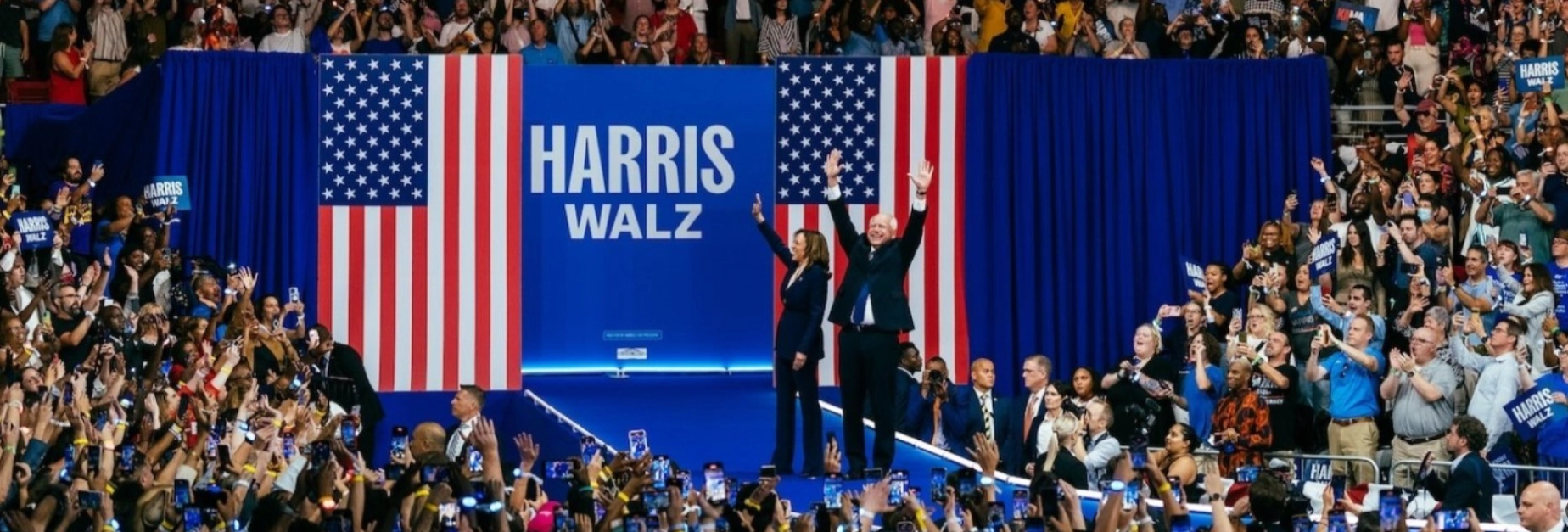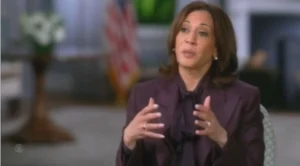Democrats’ Concern Grows as Kamala Harris Faces Decline in Support Am0ng Black Male Voters in Michigan
Kamala Harris struggles to maintain Black male voter support in Michigan, a crucial swing state for Democrats in the 2024 election.
Democrats’ Concern Grows as Kamala Harris Faces Decline in Support Among Black Male Voters in Michigan
 As the 2024 presidential election approaches, Democrats are sounding the alarm over a significant challenge facing Vice President Kamala Harris—her declining support among Black male voters in Michigan, a key swing state that could play a pivotal role in determining the outcome of the election.
As the 2024 presidential election approaches, Democrats are sounding the alarm over a significant challenge facing Vice President Kamala Harris—her declining support among Black male voters in Michigan, a key swing state that could play a pivotal role in determining the outcome of the election.
Michigan has historically been a battleground state for both Democrats and Republicans, but the loss of a crucial voting bloc could hinder Democratic chances in the upcoming election. While Harris has been a trailblazer as the first Black and South Asian female Vice President, she is facing an erosion of support from Black men—a demographic that has traditionally leaned Democratic but now shows signs of disillusionment.
A Shift in Black Male Voter Support
 According to recent polling and campaign insiders, Kamala Harris is struggling to maintain the strong support among Black male voters that was expected when she was chosen as Joe Biden‘s running mate in 2020. Many Black male voters in Michigan have expressed disappointment with the progress made on key issues such as racial justice, economic inequality, and police reform, which were hot topics during the last election cycle.
According to recent polling and campaign insiders, Kamala Harris is struggling to maintain the strong support among Black male voters that was expected when she was chosen as Joe Biden‘s running mate in 2020. Many Black male voters in Michigan have expressed disappointment with the progress made on key issues such as racial justice, economic inequality, and police reform, which were hot topics during the last election cycle.
For these voters, the Biden-Harris administration’s record of delivering significant changes has fallen short of expectations. Many feel their concerns are being overlooked, and some are either disengaging from the political process or considering voting for alternative candidates.
Jeremiah Wilson, a community activist in Detroit, expressed frustration over what he saw as a lack of tangible results for Black communities. “We voted for change, and we’re still waiting for it,” he said. “I’m not seeing the economic improvement or justice reforms that were promised.”
This growing sentiment among Black male voters presents a serious challenge for Harris, who was expected to be a figure that energized this crucial demographic.
The Role of Economic Disparities
 One of the primary concerns driving the erosion of support is economic inequality. Despite the promises made during the 2020 election, many Black men in Michigan feel they have not experienced the level of economic improvement they were hoping for. Job opportunities, wage growth, and the ability to build generational wealth remain significant issues, particularly in urban centres like Detroit and Flint, where many Black male voters reside.
One of the primary concerns driving the erosion of support is economic inequality. Despite the promises made during the 2020 election, many Black men in Michigan feel they have not experienced the level of economic improvement they were hoping for. Job opportunities, wage growth, and the ability to build generational wealth remain significant issues, particularly in urban centres like Detroit and Flint, where many Black male voters reside.
For years, these communities have faced disinvestment, high unemployment, and economic challenges, and the slow pace of change under the current administration has left some voters feeling abandoned. Although the Biden-Harris administration has made strides in areas like infrastructure investment and pandemic relief, many feel that these efforts have not translated into real benefits for Black men in Michigan.
Economist Dr Alicia Brooks explains, “The economic policies put in place have not had a noticeable impact on reducing income disparity for Black men, especially in hard-hit areas like Detroit. There’s a growing frustration that the promises of economic recovery have not materialized in their daily lives.”
Racial Justice and Police Reform: Still Waiting
 Another significant factor contributing to Harris’s declining support is the perception that the administration has not done enough on the issue of racial justice. Black male voters were among the most vocal during the protests of 2020, which called for police reform and an end to systemic racism. However, many feel that the administration has not made substantial progress on these fronts.
Another significant factor contributing to Harris’s declining support is the perception that the administration has not done enough on the issue of racial justice. Black male voters were among the most vocal during the protests of 2020, which called for police reform and an end to systemic racism. However, many feel that the administration has not made substantial progress on these fronts.
Efforts to pass major police reform legislation stalled in Congress, and while there have been executive actions on issues related to civil rights, they have not been enough to satisfy many Black voters who expected more immediate and profound change. This perceived inaction on such an important issue is alienating a critical segment of the electorate.
“Police reform was a big issue for me, and it feels like nothing has changed,” said Michael Harris, a 28-year-old voter from Flint. “Kamala Harris should be leading the charge on this, but it doesn’t feel like it’s happening.”
The Road Ahead for Harris and the Democrats
With the election looming, the Democratic Party is facing a critical crossroads. Michigan, with its large population of Black voters, is a must-win state for the party if they hope to secure another term in the White House. To win, Harris and the broader Democratic campaign will need to find a way to reconnect with Black male voters and address their concerns more effectively.
In response to these challenges, Democratic strategists are focusing on outreach initiatives aimed at rebuilding trust within the Black male community. The Harris campaign has intensified efforts in cities like Detroit, Flint, and Grand Rapids, holding town hall meetings, listening sessions, and working with community leaders to find solutions that speak directly to the concerns of Black men.
Additionally, Harris has been actively promoting the administration’s work on economic recovery, racial justice, and police reform, though some argue these efforts may be too late to sway disillusioned voters.
Democratic strategist Malcolm Greene says, “If Kamala Harris is going to regain the support of Black male voters, there needs to be a clear message and concrete action. Black men need to feel seen and heard, and the policies need to address their immediate concerns.”
Republican Challenge: Could Harris’s Loss Be the GOP’s Gain?
 The declining support for Harris among Black male voters has not gone unnoticed by Republicans. The GOP has been making inroads with this demographic in recent years, particularly by focusing on economic opportunities, law and order, and smaller government.
The declining support for Harris among Black male voters has not gone unnoticed by Republicans. The GOP has been making inroads with this demographic in recent years, particularly by focusing on economic opportunities, law and order, and smaller government.
Republican operatives see an opportunity to peel away Black male voters in swing states like Michigan by presenting themselves as a better alternative to the Democratic Party. The combination of economic discontent, disillusionment with the current administration’s handling of racial issues, and a targeted Republican outreach campaign could shift voter allegiances.
Lance Morris, a political commentator, stated, “The GOP is offering Black male voters something different—an alternative to what they’ve experienced with Democrats. The question is whether they can deliver on these promises and whether Black voters are willing to give them a chance.”
A Pivotal Moment for 2024
As the 2024 election draws near, Kamala Harris faces the daunting task of regaining the trust and support of Black male voters in Michigan. This demographic, while small, could be the difference between winning and losing a swing state that has been critical in recent elections.
The path forward for Harris will require addressing the economic and racial justice concerns of these voters in a way that feels tangible and timely. The stakes are high, not just for Harris, but for the Democratic Party as a whole. Michigan, a key battleground, may once again determine the fate of the presidency, and without strong support from Black men, the path to victory may become significantly more difficult.
